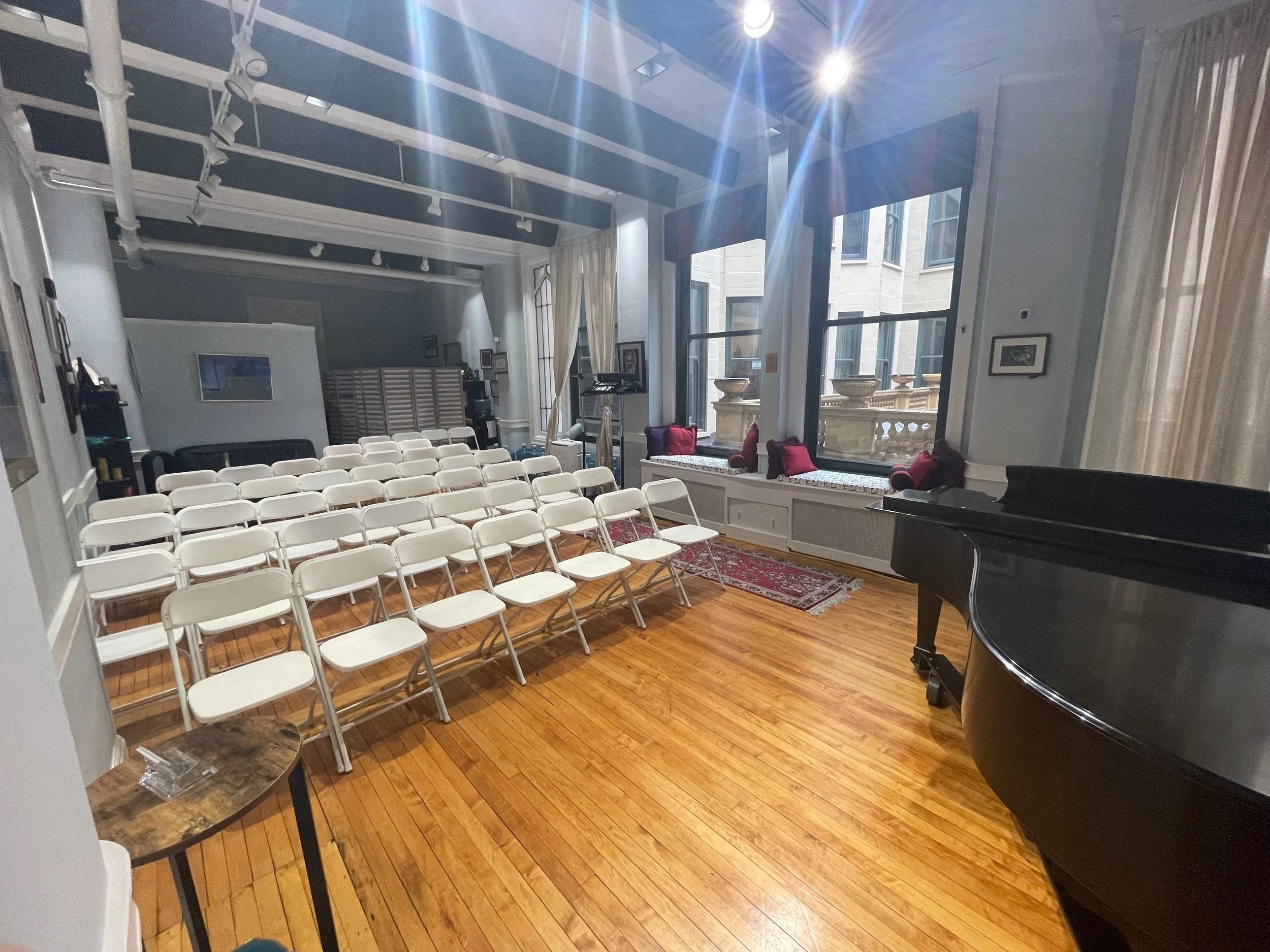VOICES Of Summer
Greater Expression in Singing
Fine Arts Building
Chicago
_______
Faculty
Pedro Yañez, internationally known pianist and coach with credits at L’Opéra National de Paris, Lyric Opera Chicago, Dallas Opera, Santa Fe and Colorado Operas, and Los Angeles Opera, where, among his many duties, he was Placido Domingo’s coach and pianist.
Brian Whelan. With a Physical Therapist Assistant degree and a Kinesiology background from the University of Illinois at Chicago, Brian has built a career helping people move and feel better. He gained experience working at Loyola Medicine, Edward J. Hines VA Hospital, and West Suburban Medical Center, (currently Athletico United Center). As an APTA DEI Scholarship winner, Brian is dedicated to promoting inclusivity to making physical therapy more inclusive and accessible.
Myron Myers, bass, Grammy-nominated, concerts in Lincoln Center, Kennedy Center, Carnegie Hall, with conductors such as Robert Shaw, Marin Alsop, Leonard Slatkin, recordings with Telarc, Musical Heritage Society, ABC. Full career highlights in the Archive section, Recital, Concert, Opera, Teaching, Recording.
Apply at www.voicesofsummer.com
Week One
In Pursuit of Portamento
Legato is portamento, sped up. Portamento is not only an expressive gesture, it is the basis of a sound vocal technique. “The voice is a portamento instrument,” Elizabeth Fleming said, a statement that has echoes going back to the days of the castrati, who, be it remembered, had to unite, often, three octaves. The method they used was the portamento thread, which, as Garcia notes, “will assist in equalising the registers, timbre and power of the voice.” (New Teatise on the Art of Singing) Legato is that steady flow of equalized vowels on which the meaning of the text can be infused. The first week of study will establish portamento/legato via the vocalises of Elizabeth Fleming and her predecessors Hislop, Bratt and Franceso Lamperti.
Week Two
In Pursuit of Greater Artistry
A translation of a foreign language text is only the beginning. Some English language poetic texts may need translation into modern comprehension. True understanding of the content of the text arises from acting it, preparing it as an actor would, reading it with abandon, without music, until the weight of each word is determined, the flow of emotional content can be felt, the subtleties of color revealed. Next, the singer recites the text to the music, but does not sing. This establishes the link between the composer and the interpreter. This information is then transferred to singing on the portamento/legato thread established in week one.
WEEKLY SCHEDULE
Opening Reception
First Week: First Session with physical therapist - Posture and Breathing
Exploration of bel canto strategies for portamento/legato singing based on the vocalises of Elizabeth Fleming and her predecessors Joseph Hislop, Gillis Bratt, and Francesco Lamperti.
Two groups of five people, morning and afternoon, for individual attention in a group setting. All participants attend both sessions. Discussion encouraged.
Second Week: Second Session with physical therapist - Posture and Breathing
Dramatic reading of texts associated with opera, oratorio and art song. Expressive elements derived from reading applied to the legato line discovered in week one. Two groups as in the first week.
Final Concert and Reception
“Music, through the language of emotions, can only arouse them in a vague and general manner. To express any particular feeling or idea we must make use of the words. The pupil must read the words of the piece again and again till the finest shadow of meaning has been mastered. He must next recite them with perfect simplicity and self-abandonment. The accent of truth apparent in the voice when speaking naturally is the basis of expression in singing. Light and shade, accent, sentiment, all become eloquent and persuasive. The imitation of instinctive impulse must, therefore, be the object of special preparation”
Manuel Garcia, Hints on Singing



